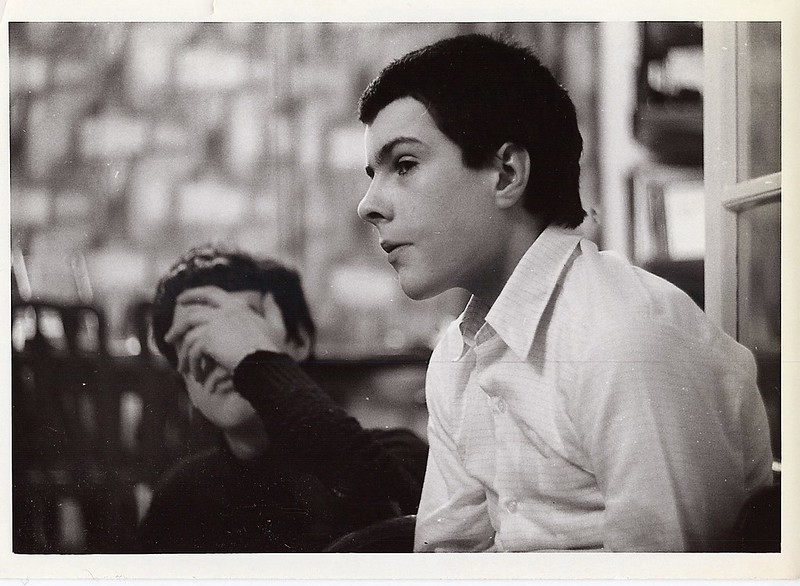
Image Credit: Graham Knott
As negotiators we are always looking for ways to become better. We would all like to be able to find a “silver bullet” that could allow us to move to the next level. It turns out that there really is no such thing as a silver bullet when it comes to negotiating skills. However, there is one thing that we can all do that will have an immediate impact on our abilities: start listening more.
Prepare To Listen
Driven by the anxiety associated with a negotiation, we tend to prepare for a negotiation by writing down what we want to say. This activity sets us up to do lots of telling and little listening. Alternatively if your preparation includes making a list of the other side’s interests, you are likely to discover that you don’t understand them as well as you should. These blanks in your survey of the other party’s interests should serve as prompt for the questions you will ask when you sit down at the table. If you enter a negotiation with a list of questions rather than a list of arguments, you are more likely to do the smart thing and spend time probing the other side’s interests.
Build A Habit Of Listening
If you were a professional tennis player you would not try out a new backhand in the finals at Wimbledon. Yet negotiators often wait for our most important negotiations to focus on changing our listening habits. What we need to realize is that our less-important negotiations are key to developing our skills. They don’t even have to a “negotiation” per se. The next time you find yourself disagreeing with someone—whether your significant other, a friend or a colleague – try seeing how many questions you can ask in a row without presenting your own point of view. You could even somehow time yourself to see how long you can keep inquiring without giving your opinion. What you’ll find out is that it’s often harder than it sounds. Set benchmarks for this listening, and you can try to ask more questions each time.Use Pavlovian Conditioning To Improve Your Listening
What we need to understand about humans is that if we get some kind of reward for listening, we’ll do it more. If you want to improve your listening skills then there is an exercise that you can do with someone close to you, such as your partner, parent, or child. What you’ll want to do is to raise an ongoing dispute that you’ve had with them. Tell them that you’re worried you don’t understand their viewpoint well enough and that you want to learn more. Ask questions until you stop learning anything new and then summarize their view. Your goal should be to understand the person’s perspective well enough, and summarize it fairly enough, that they say, “Yes, that’s right!”. Simply by doing this you may discover that you have resolved the issue.
What All Of This Means For You
Negotiators are always looking for ways that they can become better. We would like to find a magic tool that could transform our negotiation styles and negotiating techniques overnight. Such a tool does not exist, but we can become better negotiators if we take the time to improve how we listen.
Good listening is not something that just happens. Rather, we need to prepare to be good listeners. When we enter into a principled negotiation we need to make sure that we have plenty of questions that we want to ask the other side. Developing listening skills requires practice. We don’t want to practice this skill during our biggest negotiations, instead we want to use smaller negotiations to develop the skill so that we can use it later on. In order to get better at listening, we should create situations where we get rewarded for good listening. Take the time to hear someone out and just ask questions. In the end the issue may be resolved and you’ll feel good about your listening skills.
Anytime that there is a way that we can become better negotiators, we should always seize the opportunity. It turns out that if we take the time to become better listeners, we just might be able to do a better job during our next negotiation. The real trick to understand how we can go about developing the skill of listening. Once we’ve mastered this skill, we’ll be able to get more out of our next negotiation.
– Dr. Jim Anderson
Blue Elephant Consulting –
Your Source For Real World Negotiating Skills™
Question For You: How do you think that you could tell if you had become a better listener?
P.S.: Free subscriptions to The Accidental Negotiator Newsletter are now available. Learn what you need to know to do the job. Subscribe now: Click Here!
What We’ll Be Talking About Next Time
Negotiators know that the real challenge to a negotiation comes at the end. No matter what negotiation styles or negotiating techniques have been used during the negotiation, in the end it all comes down to the closing. Can you get the other side to agree to do a deal with you? As simple as this sounds, it often turns out to be a lot harder than any of us would like it to be. What we need are tips on how to make this critical event happen and (with a little luck) happen faster.
